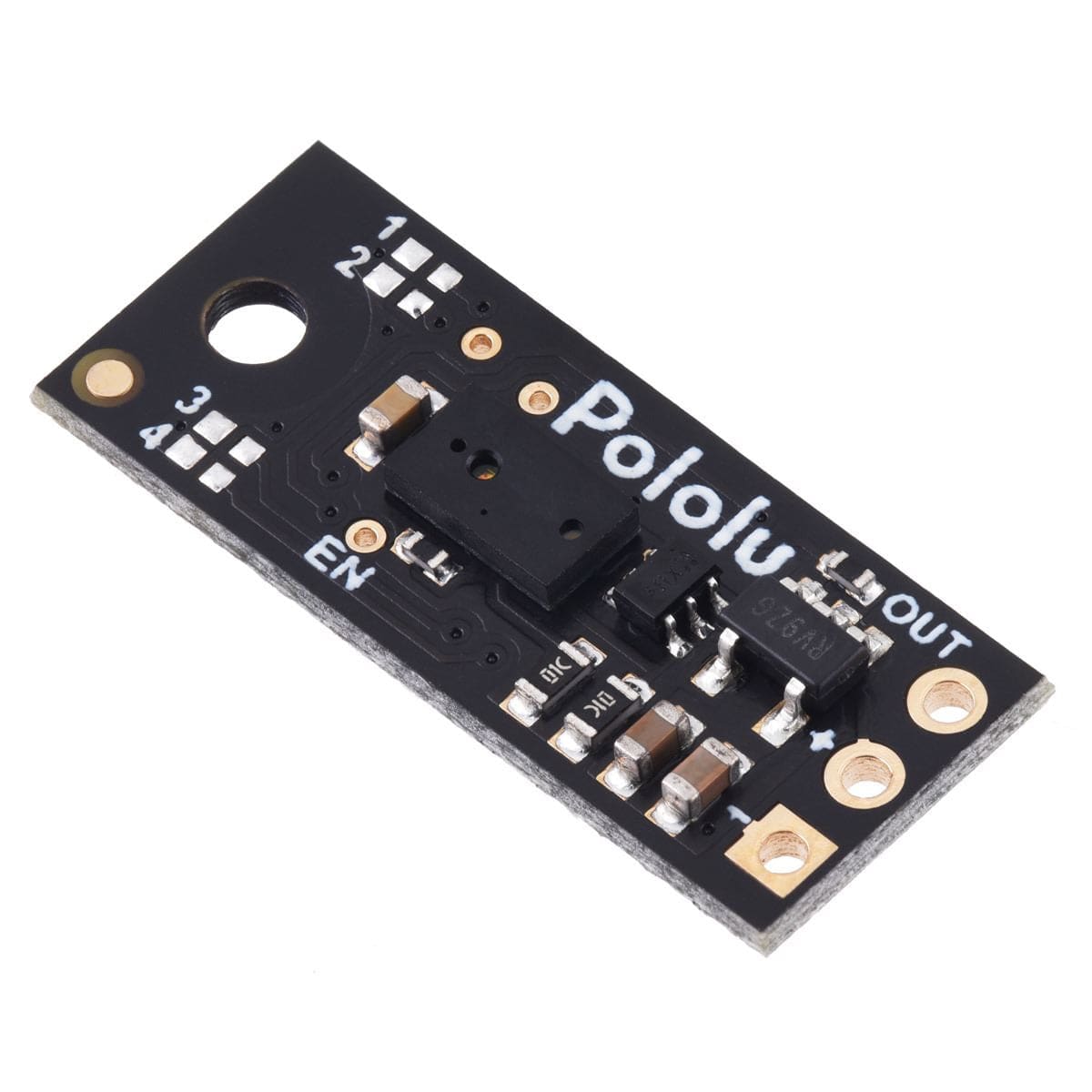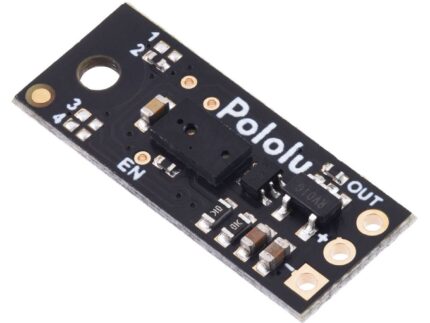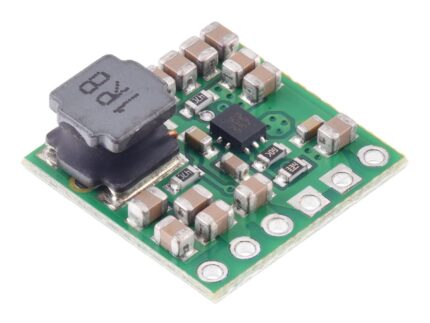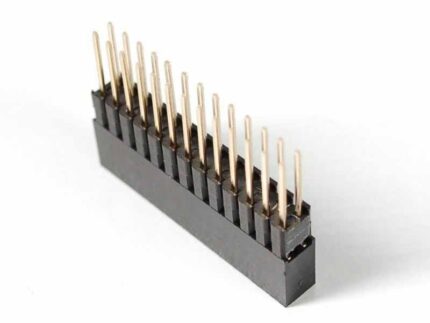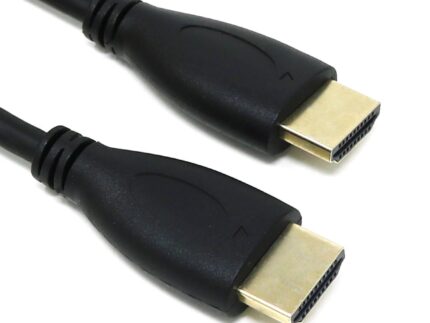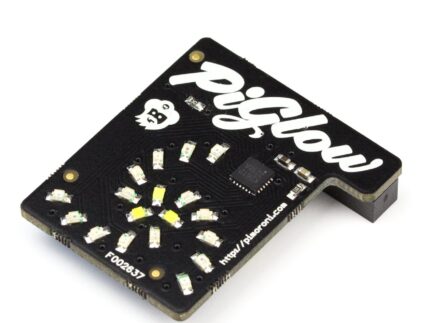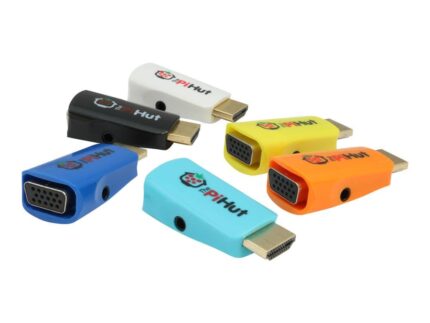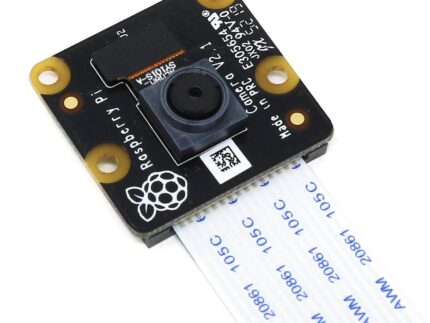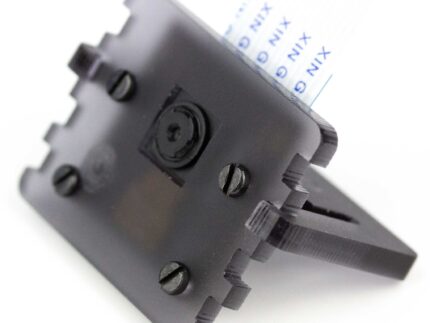Pololu Digital Distance Sensor 5cm
This small lidar-based distance sensor from Pololu detects the presence of objects within 5 cm. It has a single digital output that drives low when an object is being detected; otherwise, it is high. It works over an input voltage range of 3.0 V to 5.5 V, and the 0.1″ pin spacing makes it easy to use with standard solderless breadboards and 0.1″ perfboards.
This compact sensor is a great way to quickly detect the presence of nearby objects. As long as the sensor is enabled, it takes continuous distance measurements and uses a single digital output to indicate if it detects an object within its detection range. The output is driven low when the sensor detects an object; otherwise, the output is high.
Please note that this sensor will only tell you if there is an object within the detection range along its line of sight, not how far away it is. As shown in the diagram in the product images, there is hysteresis at the maximum range threshold to help ensure a clean transition as objects cross the threshold. The sensor can detect objects to within about 5 mm of the sensor face.
Unlike simpler optical sensors that use the intensity of reflected light to detect objects, this sensor uses a short-range lidar module to precisely measure how long it takes for emitted pulses of infrared, eye-safe laser light to reach the nearest object and be reflected back. This allows the sensor performance to be largely independent of object reflectivity and ambient lighting conditions (though the range can be reduced for extremely low-reflectance objects).
Some example applications include:
- break-beam sensor or photogate alternative
- non-contact bumper or obstacle detector for a robot
- non-contact interface element for activating a device or process
- a counter or timer of objects as they pass by
Important note: This product might ship with a protective liner covering the sensor IC. The liner must be removed for proper sensing performance.
Specifications
- Operating voltage: 3.0 V to 5.5 V
- Current consumption: 30 mA (typical) when enabled, 0.4 mA when disabled
- Maximum range: 5 cm (2″)
- Minimum range: < 5 mm
- Minimum update rate: 145 Hz (6.9 ms period)
- Field of view (FOV): 15° typical; can vary with object reflectance and ambient conditions
- Output type: digital signal (low when detecting an object, high otherwise)
- Dimensions: 0.85″ × 0.35″ × 0.122″ (21.6 × 8.9 × 3.1 mm); see the dimension diagram (191k pdf) for more information
- Weight: 0.014 oz (0.4 g)
Using the sensor
Three connections are necessary to use this module: VIN, GND, and OUT. These pins are accessible through a row of 0.1″-pitch through holes, which work with standard 0.1″ (2.54 mm) male headers and 0.1″ female headers (available separately).
The VIN pin should be connected to a 3 V to 5.5 V source, and GND should be connected to 0 volts. The OUT pin drives low (0 V) when an object is being detected and it drives high (to the VIN level) when an object is not being detected. It is weakly pulled high when the sensor is disabled or waiting for its first reading to complete after power-up. A red LED on the backside of the board also lights whenever an object is detected.
The board has an optional ENABLE pin that can be driven low to put it into a low-power state that consumes approximately 0.4 mA. This pin can be accessed through a via or its neighbouring surface-mount pad on the backside labelled “EN” on the silkscreen. The ENABLE pin is pulled up to VIN, enabling the sensor by default.
The board has one mounting hole intended for use with #2 or M2 screws.
Comparison to Sharp Digital Distance Sensors
These Pololu Digital Distance Sensors have the same form factor and pinout as our Pololu carrier boards for the Sharp/Socle GP2Y0D8x digital distance sensors. They are available in the same 5 cm, 10 cm, and 15 cm ranges, in addition to longer ranges of up to several meters.
This means they can be used as replacements for these older modules, which are based on sensors from Sharp/Socle that are no longer in production, and the longer-range versions can serve as upgrades that provide enhanced detection and measurement capabilities. The sensors on these newer units are much thinner than the Sharp modules, so the zero-range point is approximately 7mm closer to the PCB, and the beam angle of the newer units is wider.
